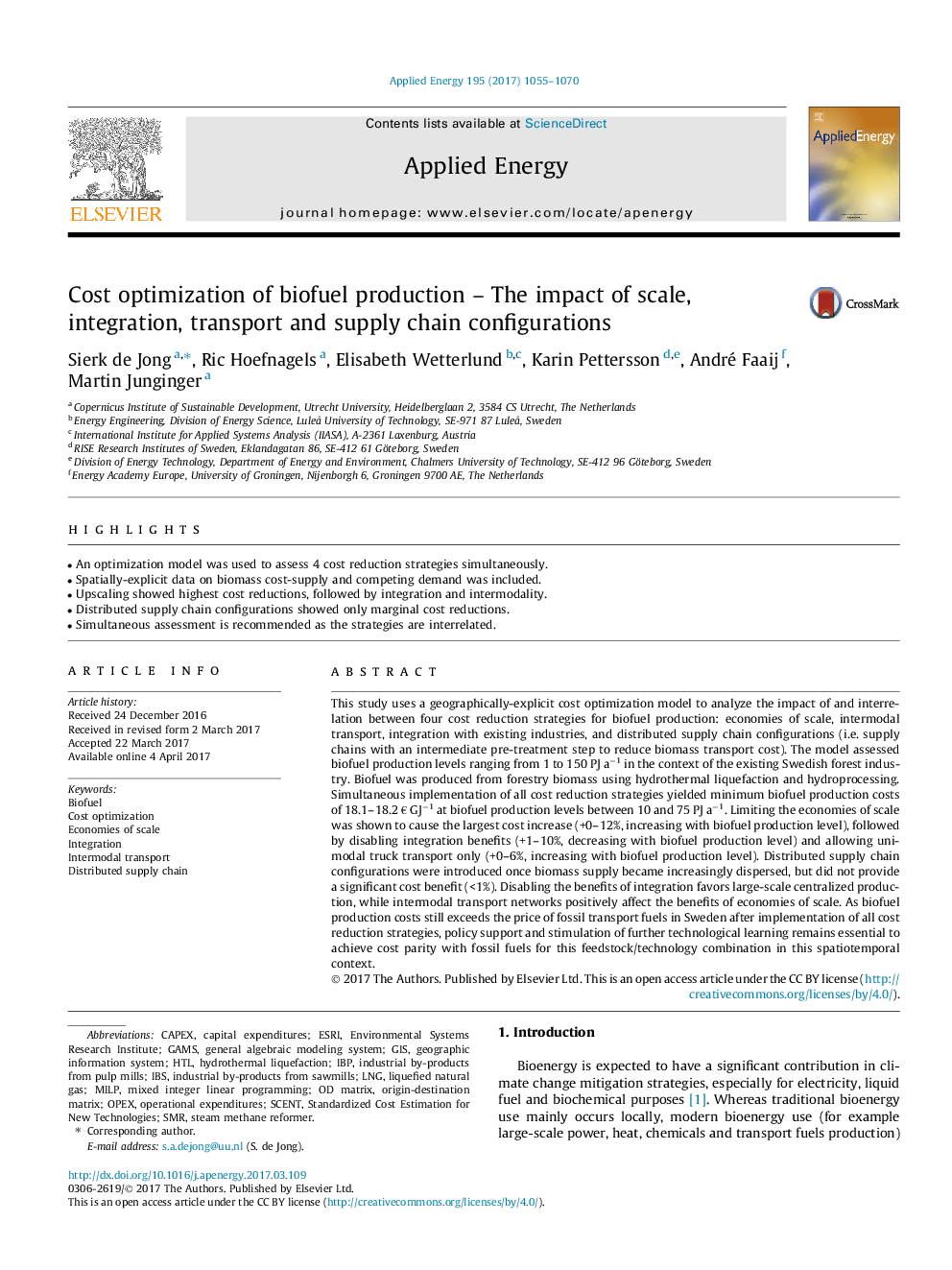| کد مقاله | کد نشریه | سال انتشار | مقاله انگلیسی | نسخه تمام متن |
|---|---|---|---|---|
| 4916541 | 1428095 | 2017 | 16 صفحه PDF | دانلود رایگان |
- An optimization model was used to assess 4 cost reduction strategies simultaneously.
- Spatially-explicit data on biomass cost-supply and competing demand was included.
- Upscaling showed highest cost reductions, followed by integration and intermodality.
- Distributed supply chain configurations showed only marginal cost reductions.
- Simultaneous assessment is recommended as the strategies are interrelated.
This study uses a geographically-explicit cost optimization model to analyze the impact of and interrelation between four cost reduction strategies for biofuel production: economies of scale, intermodal transport, integration with existing industries, and distributed supply chain configurations (i.e. supply chains with an intermediate pre-treatment step to reduce biomass transport cost). The model assessed biofuel production levels ranging from 1 to 150 PJ aâ1 in the context of the existing Swedish forest industry. Biofuel was produced from forestry biomass using hydrothermal liquefaction and hydroprocessing. Simultaneous implementation of all cost reduction strategies yielded minimum biofuel production costs of 18.1-18.2 ⬠GJâ1 at biofuel production levels between 10 and 75 PJ aâ1. Limiting the economies of scale was shown to cause the largest cost increase (+0-12%, increasing with biofuel production level), followed by disabling integration benefits (+1-10%, decreasing with biofuel production level) and allowing unimodal truck transport only (+0-6%, increasing with biofuel production level). Distributed supply chain configurations were introduced once biomass supply became increasingly dispersed, but did not provide a significant cost benefit (<1%). Disabling the benefits of integration favors large-scale centralized production, while intermodal transport networks positively affect the benefits of economies of scale. As biofuel production costs still exceeds the price of fossil transport fuels in Sweden after implementation of all cost reduction strategies, policy support and stimulation of further technological learning remains essential to achieve cost parity with fossil fuels for this feedstock/technology combination in this spatiotemporal context.
Journal: Applied Energy - Volume 195, 1 June 2017, Pages 1055-1070
